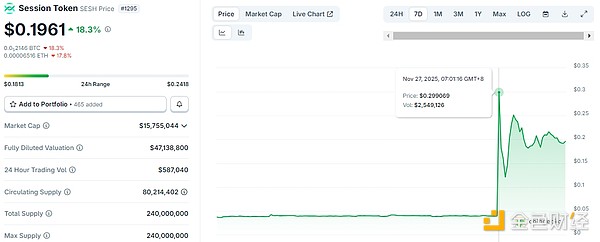South Korea Cracks Down as Crypto Scams Hijack Celebrities' Fame
- South Korean police arrested three in a $4.1M crypto scam, part of global crackdowns on digital asset fraud. - Celebrities' hacked accounts promoted fake tokens like "CR7" and "YZY," causing rapid market collapses and investor losses. - International cases include a $50M gold-laundering arrest in Thailand and a 5-year fugitive caught in Seoul over $13.2M fraud. - Chainalysis reports $2.2B stolen from crypto platforms in 2024, urging stronger regulation and investor education to combat rising scams.
South Korean law enforcement agencies have made significant progress in dismantling a large-scale cryptocurrency fraud operation, with police in Seoul arresting three individuals in connection with a $4.1 million scam. The operation, which reportedly targeted victims through deceptive cryptocurrency investment schemes, has been linked to a broader rise in digital asset-related crimes globally. The arrests represent part of a wider trend of increased regulatory scrutiny and enforcement efforts against fraudulent activities in the crypto space [4].
The latest developments come amid a surge in high-profile crypto scams involving celebrities and social media influencers. In recent weeks, multiple incidents have emerged where the accounts of prominent figures—including Adele, Future, Michael Jackson, and Cristiano Ronaldo—were allegedly compromised to promote unauthorised meme coins. These schemes typically involve the rapid promotion of a new token, often through AI-generated imagery and misleading endorsements, before orchestrating a "pump and dump" maneuver that results in substantial losses for retail investors [1]. A notable example occurred when a fake "CR7" token, falsely linked to footballer Cristiano Ronaldo, briefly reached a market cap of $143 million before collapsing by 98% within 15 minutes [2].
The tactics employed in these scams are becoming increasingly sophisticated, often leveraging the massive social media followings of celebrities to amplify the reach of fraudulent tokens. In one case, a fake "YZY" token tied to rapper Kanye West surged to a $7 million market cap after his Instagram account was hacked and used to promote the token. The real YZY token, launched officially by West, has since dropped nearly 81% from its peak, illustrating the volatile and unpredictable nature of celebrity-backed crypto projects [3].
South Korea's law enforcement has been particularly active in addressing crypto fraud. Earlier this year, Thai police arrested a 33-year-old South Korean man in a $50 million money laundering case involving the conversion of cryptocurrency into gold bars for call-center fraud syndicates. The suspect, identified by the surname Han, reportedly received approximately $47.3 million in USDT between January and March 2024 before being intercepted at Bangkok’s Suvarnabhumi Airport [5]. This case highlights the broader use of cryptocurrency in laundering and facilitating cross-border financial crimes.
In a separate but related development, a 60-year-old fugitive responsible for a $13.2 million cryptocurrency scam was arrested in Seoul after being caught littering. The man, who had evaded capture for nearly five years, defrauded over 1,300 individuals through a multi-victim scheme between 2018 and 2019. His arrest, following a suspicious encounter with police near Sillim Station, underscores how law enforcement is increasingly employing everyday behavioral indicators to track down cybercriminals [6].
As these cases demonstrate, crypto fraud is a rapidly evolving and globalized problem. According to Chainalysis, $2.2 billion in digital assets were stolen from cryptocurrency platforms in 2024 alone, while illicit actors received an estimated $40.9 billion in cryptocurrency. These figures highlight the urgent need for stronger investor education, enhanced regulatory frameworks, and continued enforcement actions to curb the spread of fraudulent schemes. The South Korean arrests and international collaborations serve as a critical step in addressing the growing threat of crypto-related crime and protecting vulnerable investors from exploitation.
Source:

Disclaimer: The content of this article solely reflects the author's opinion and does not represent the platform in any capacity. This article is not intended to serve as a reference for making investment decisions.
You may also like
What are the privacy messaging apps Session and SimpleX donated by Vitalik?
Why did Vitalik take action? From content encryption to metadata privacy.

The covert war escalates: Hyperliquid faces a "kamikaze" attack, but the real battle may have just begun
The attacker incurred a loss of 3 million in a "suicidal" attack, but may have achieved breakeven through external hedging. This appears more like a low-cost "stress test" targeting the protocol's defensive capabilities.


Interview with VanEck Investment Manager: From an Institutional Perspective, Should You Buy BTC Now?
The support levels near $78,000 and $70,000 present a good entry opportunity.
